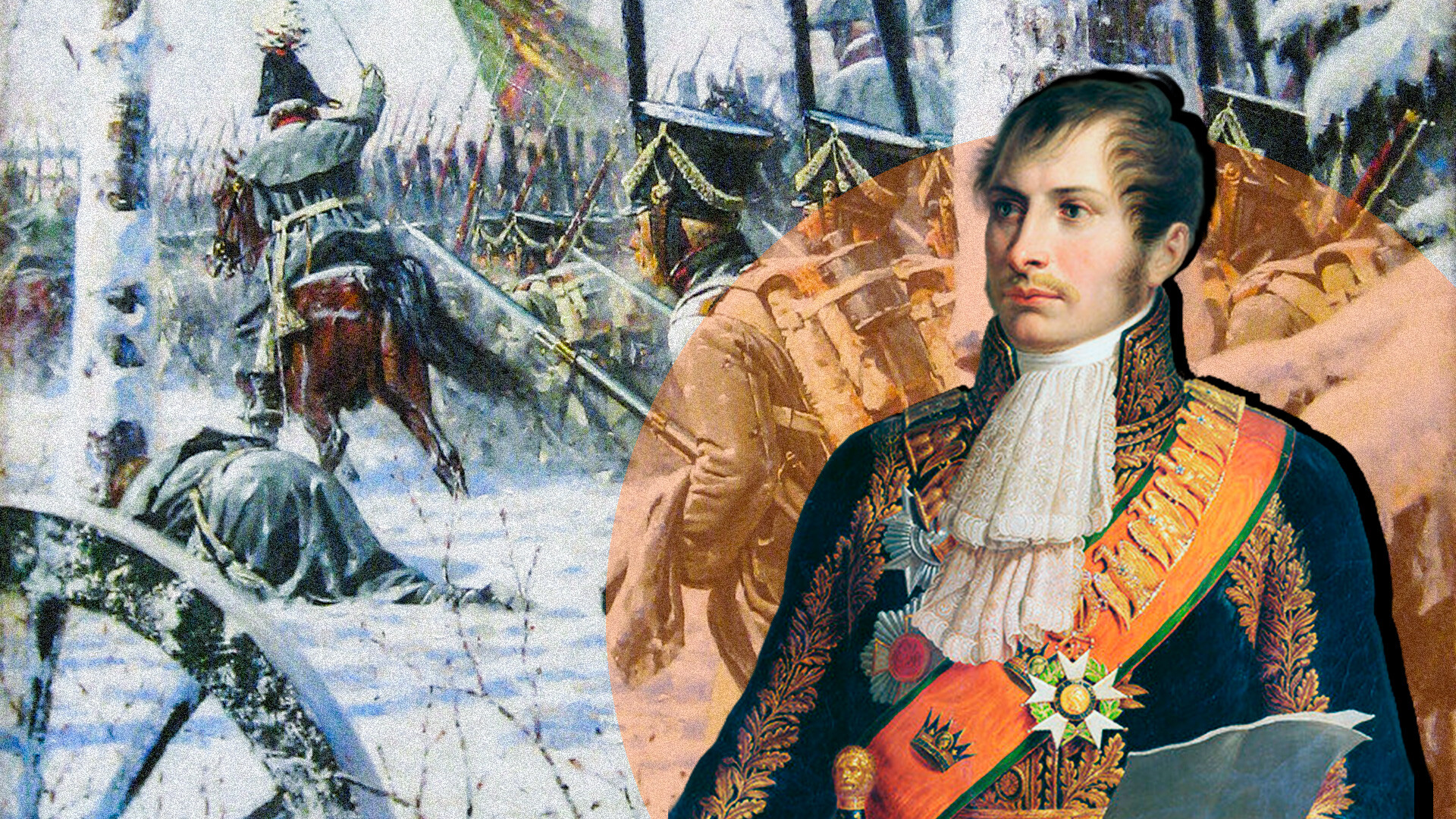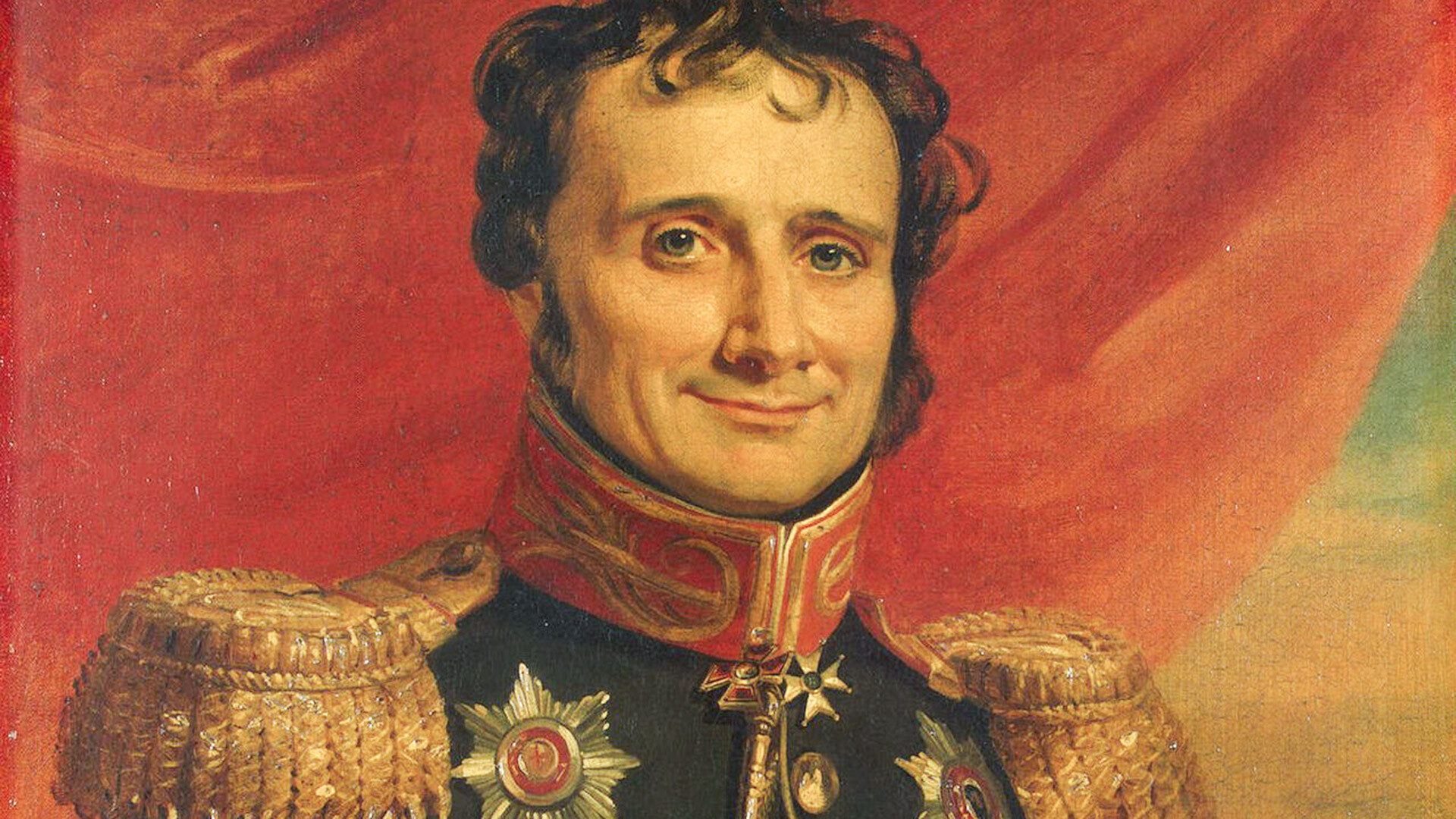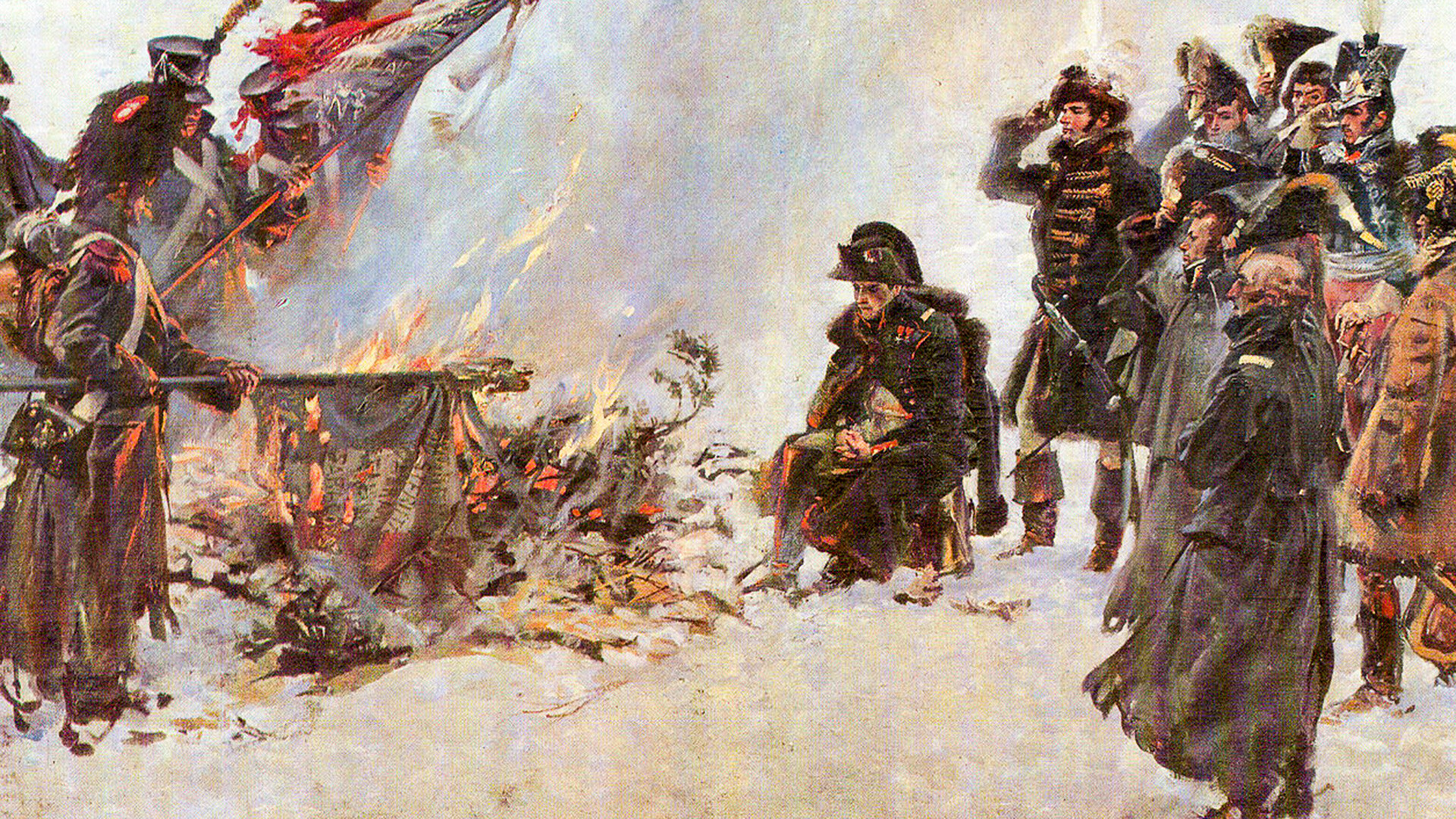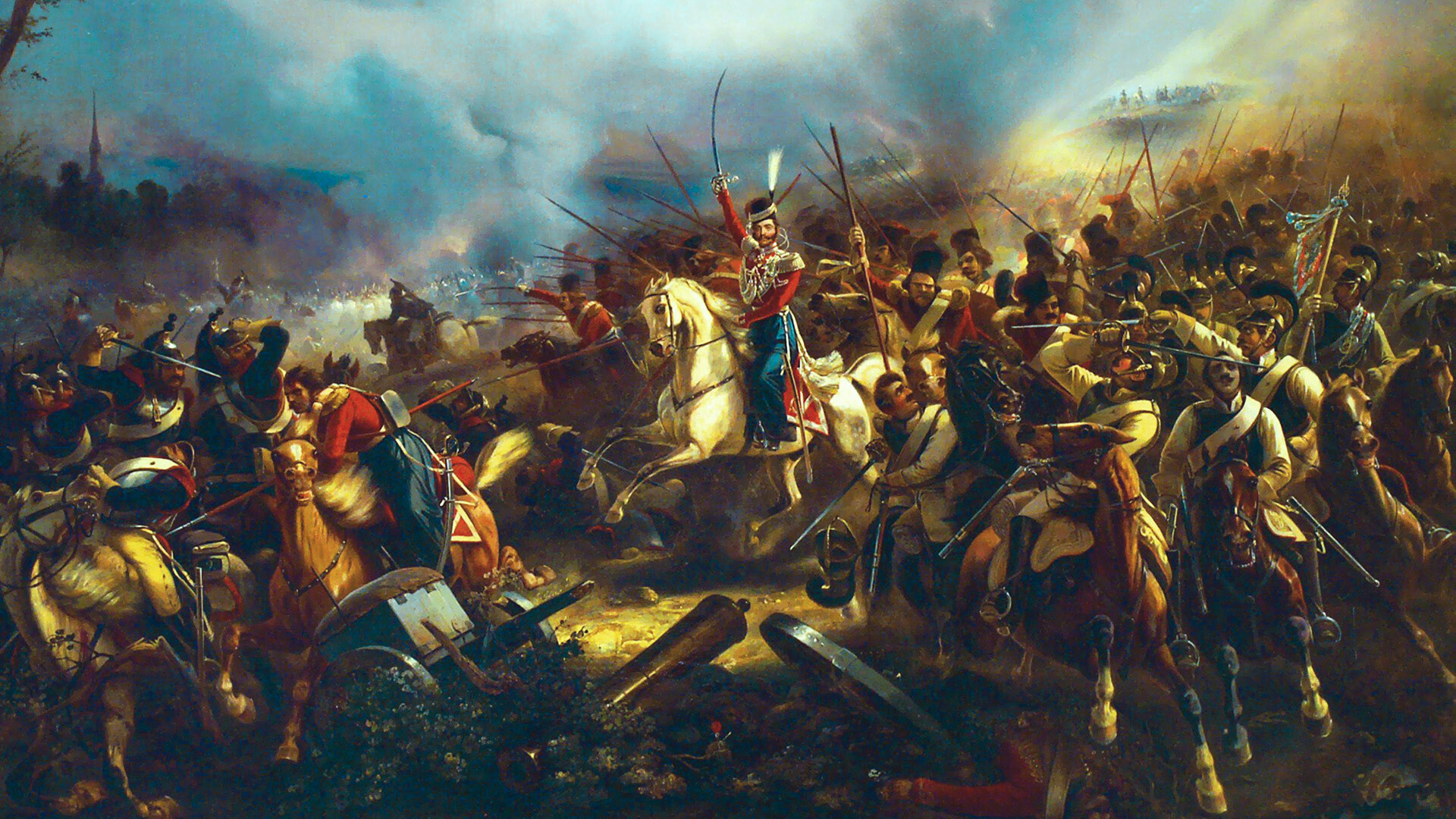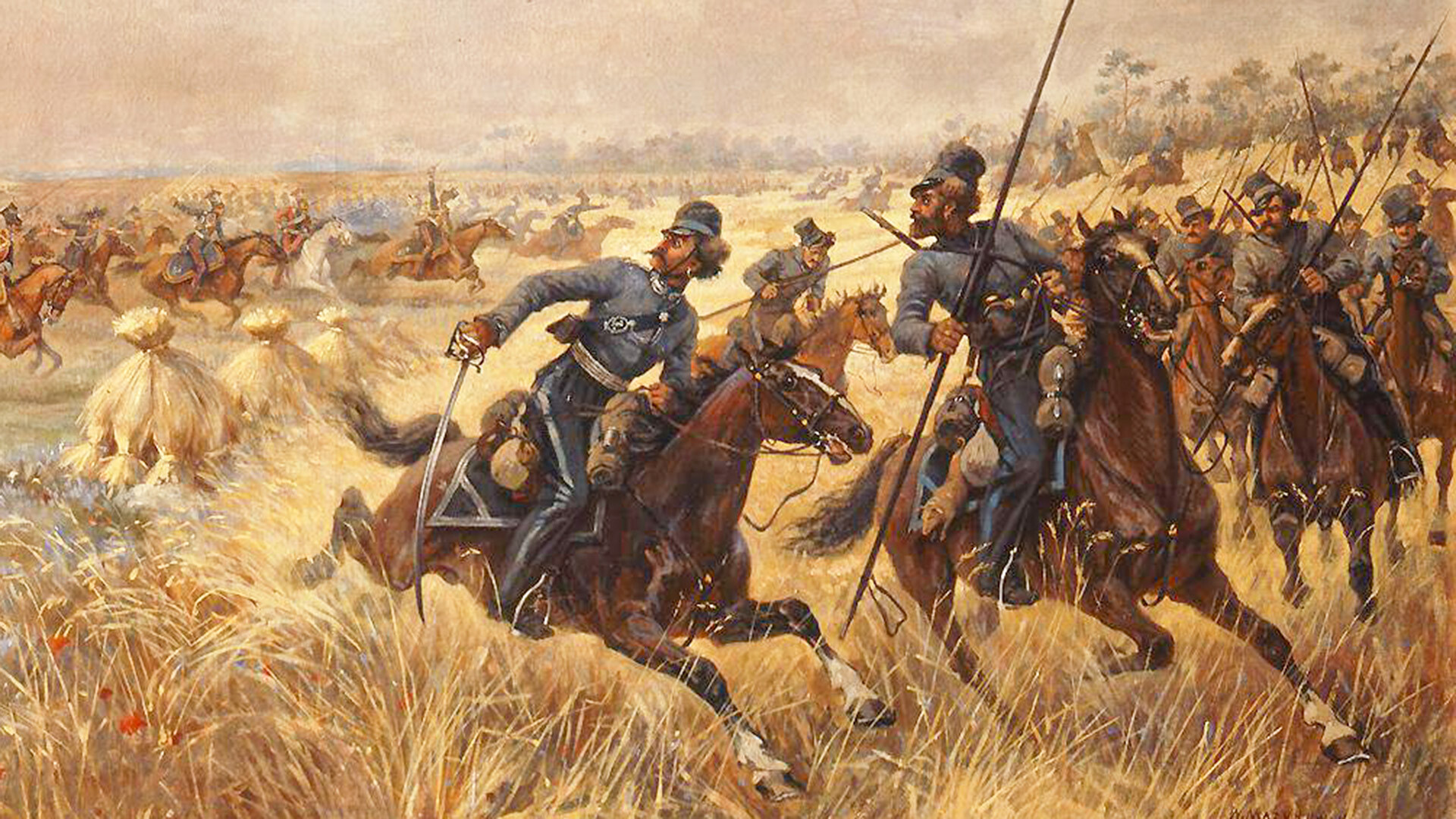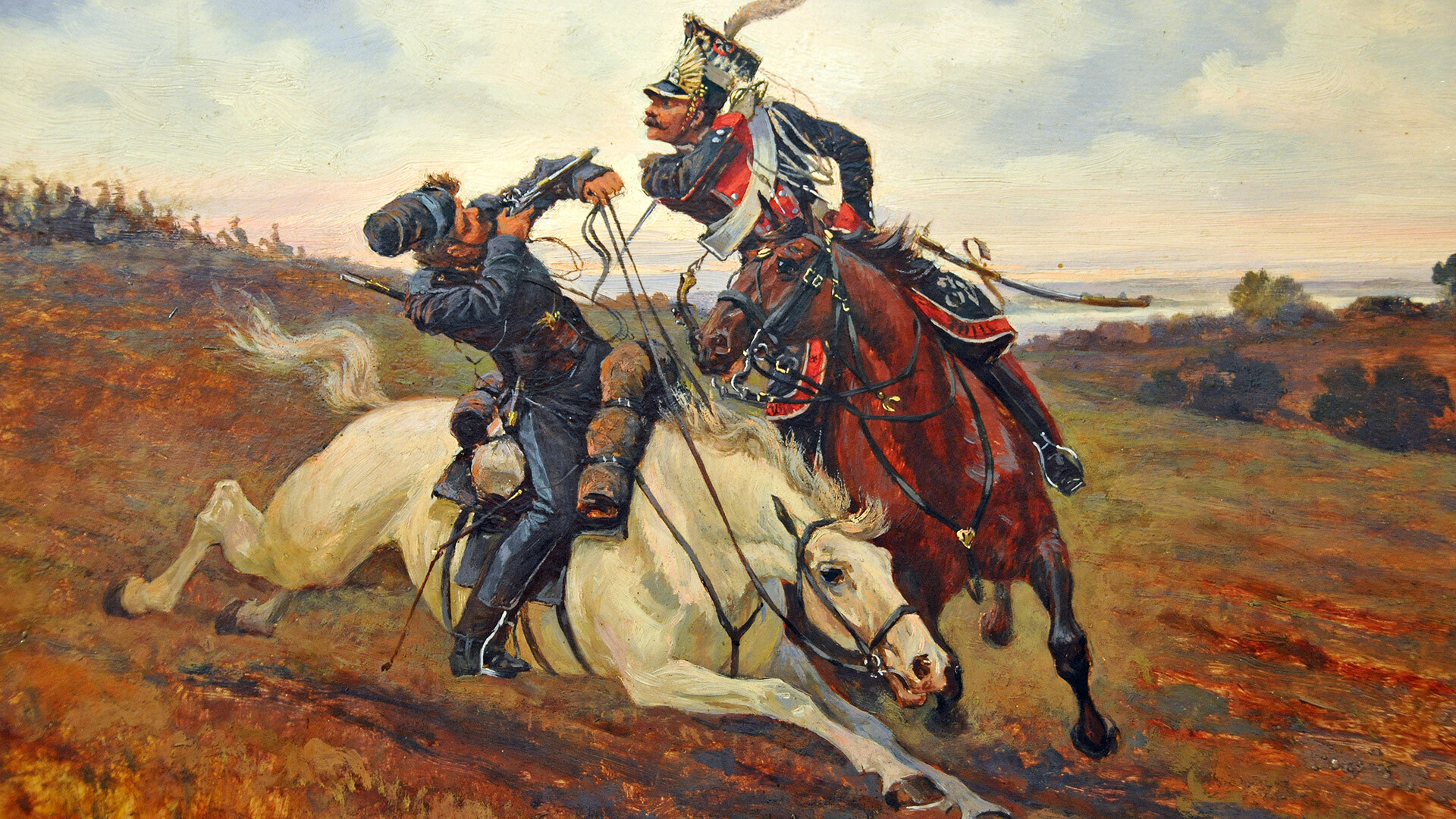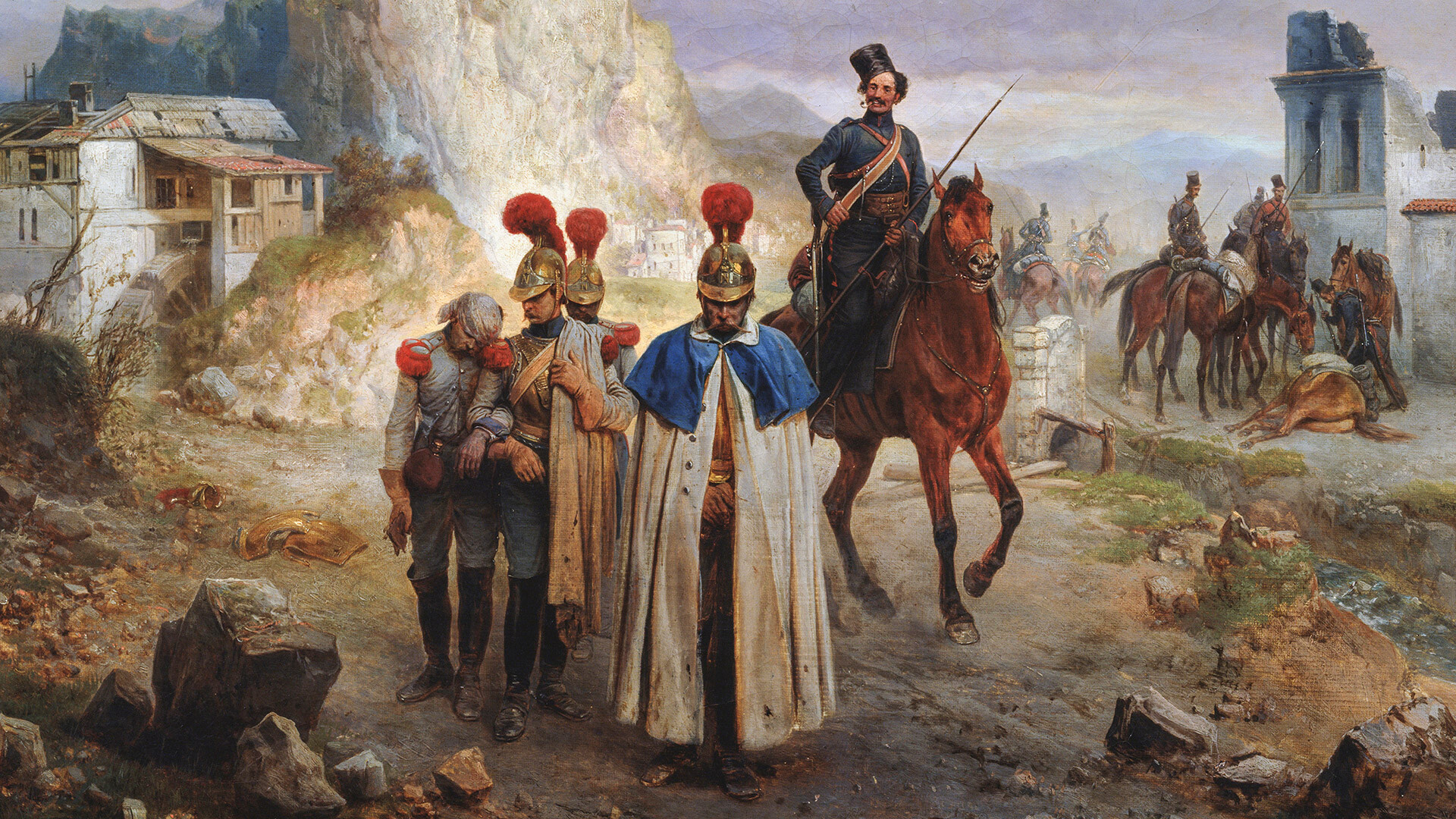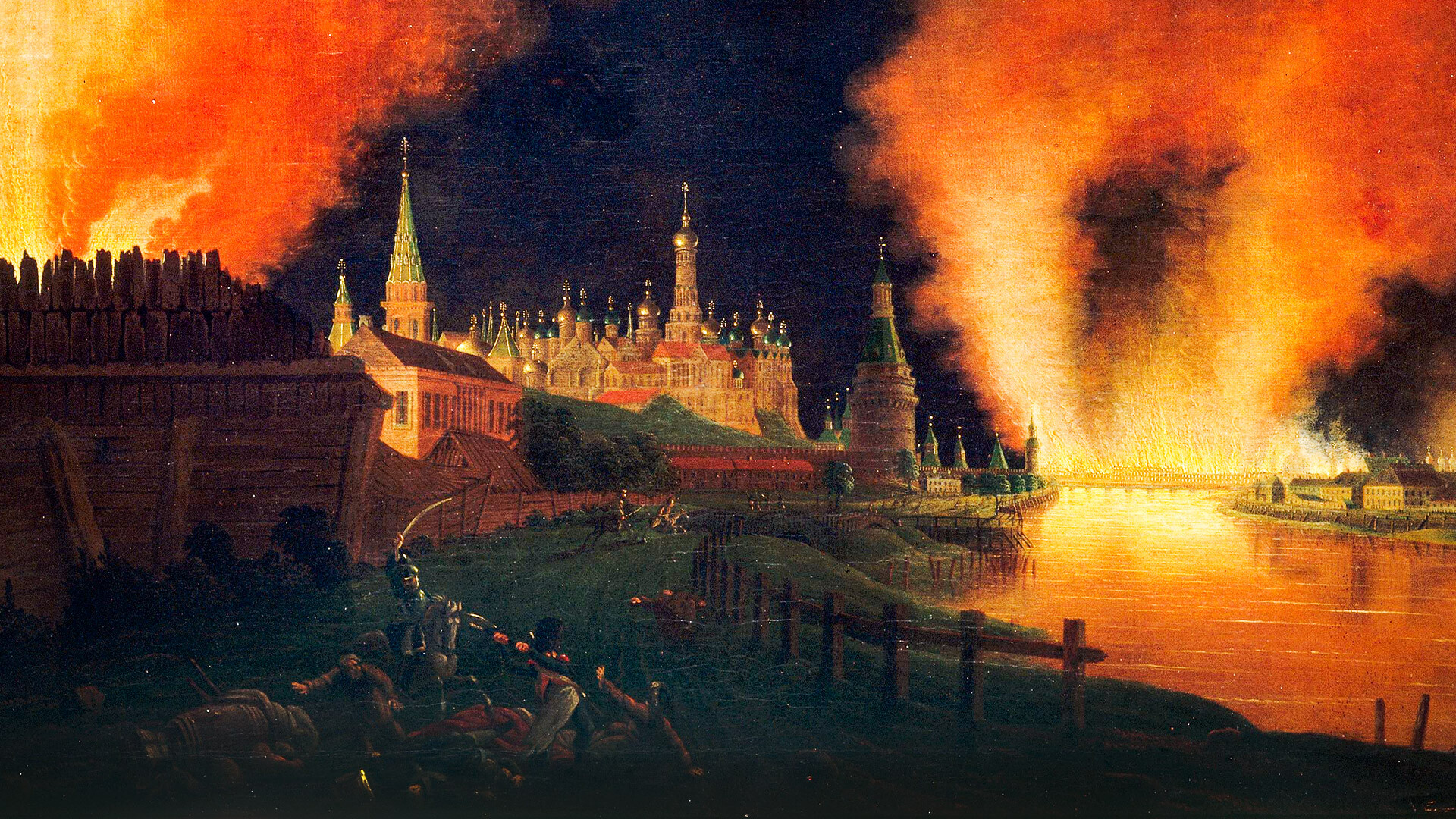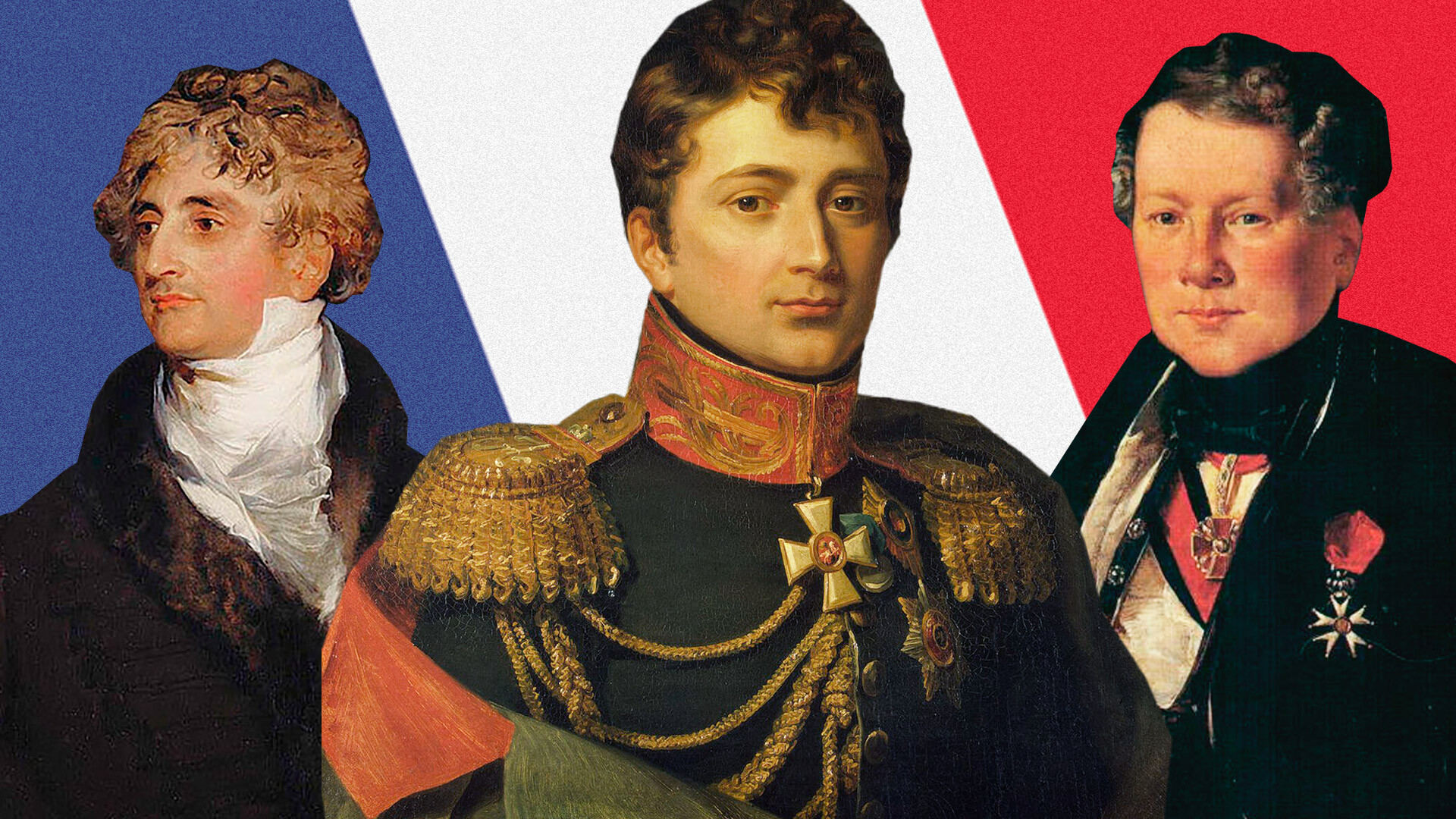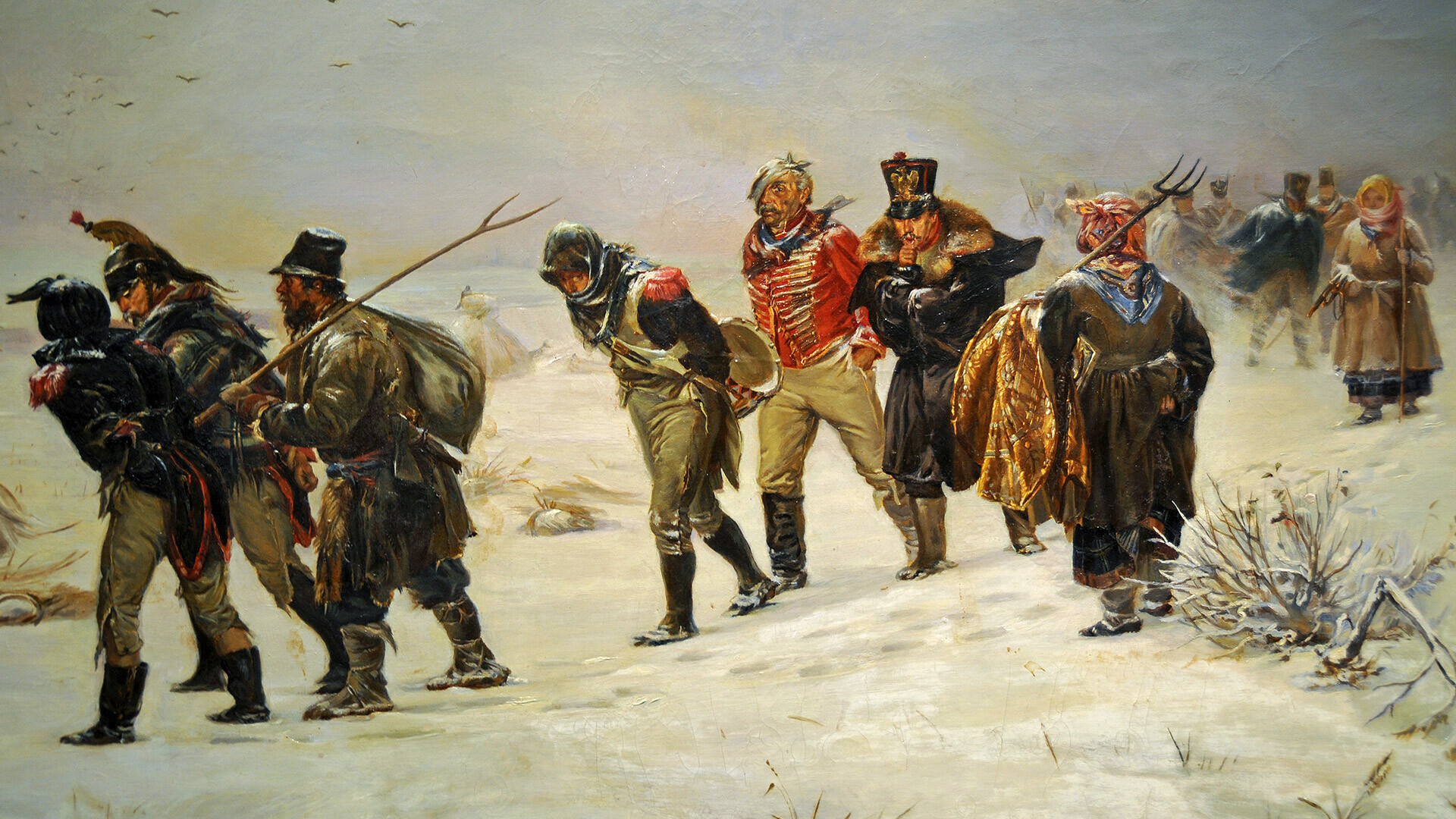
Who won the bloodiest one-day battle of the 19th century? (PICS)
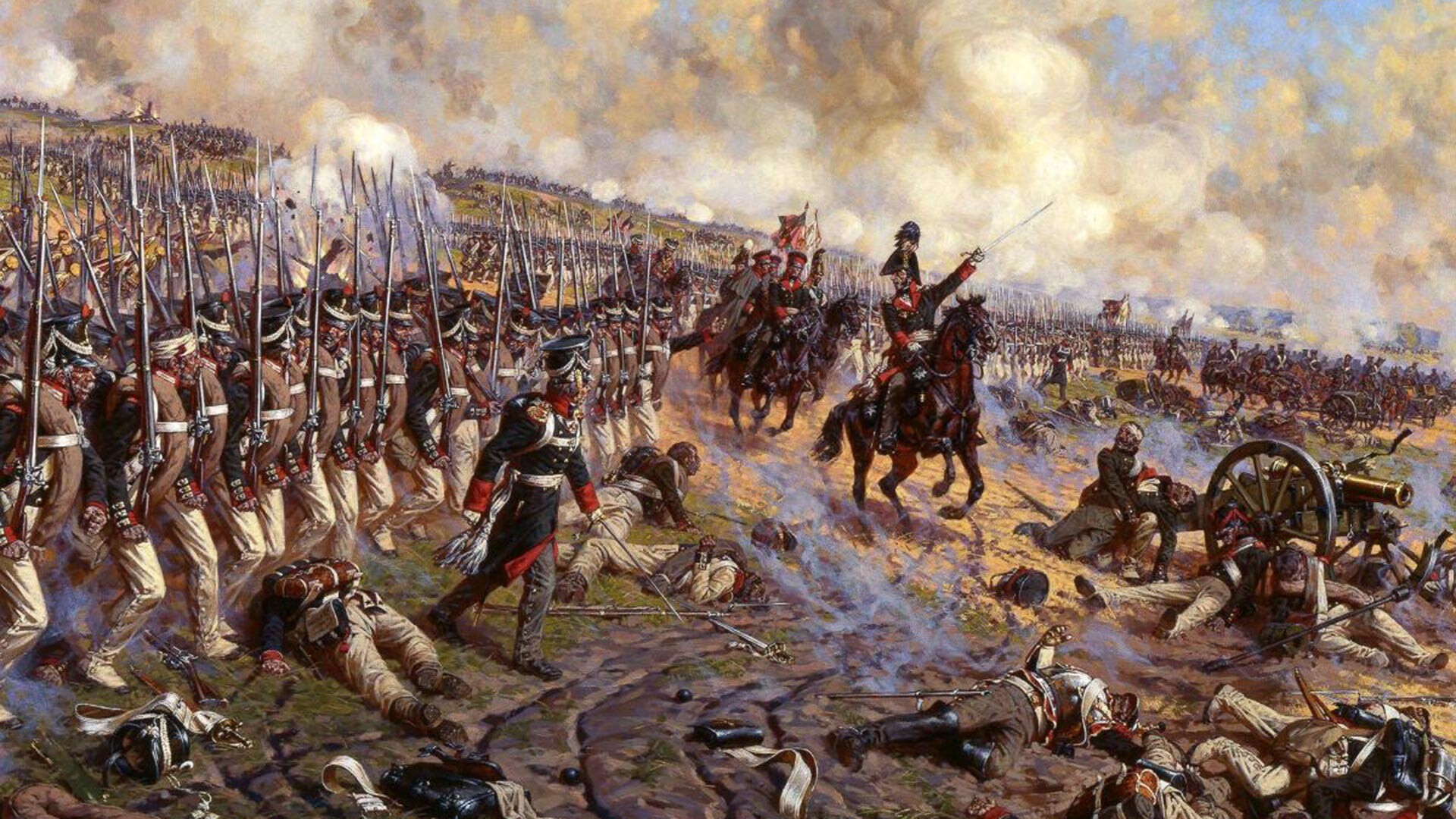
“The most terrible of all my battles was the one before Moscow. The French showed themselves to be worthy of victory, but the Russians showed themselves worthy of being invincible,” is how Napoleon Bonaparte described the Battle of Borodino, which took place on September 7, 1812, a little over 100 km from Moscow. In just one day of fighting, the Grande Armée and the Russian troops under the command of General Mikhail Illarionovich Kutuzov had a total of about 80,000 men killed, wounded or missing in action. This makes Borodino the bloodiest one-day battle in history until World War I.
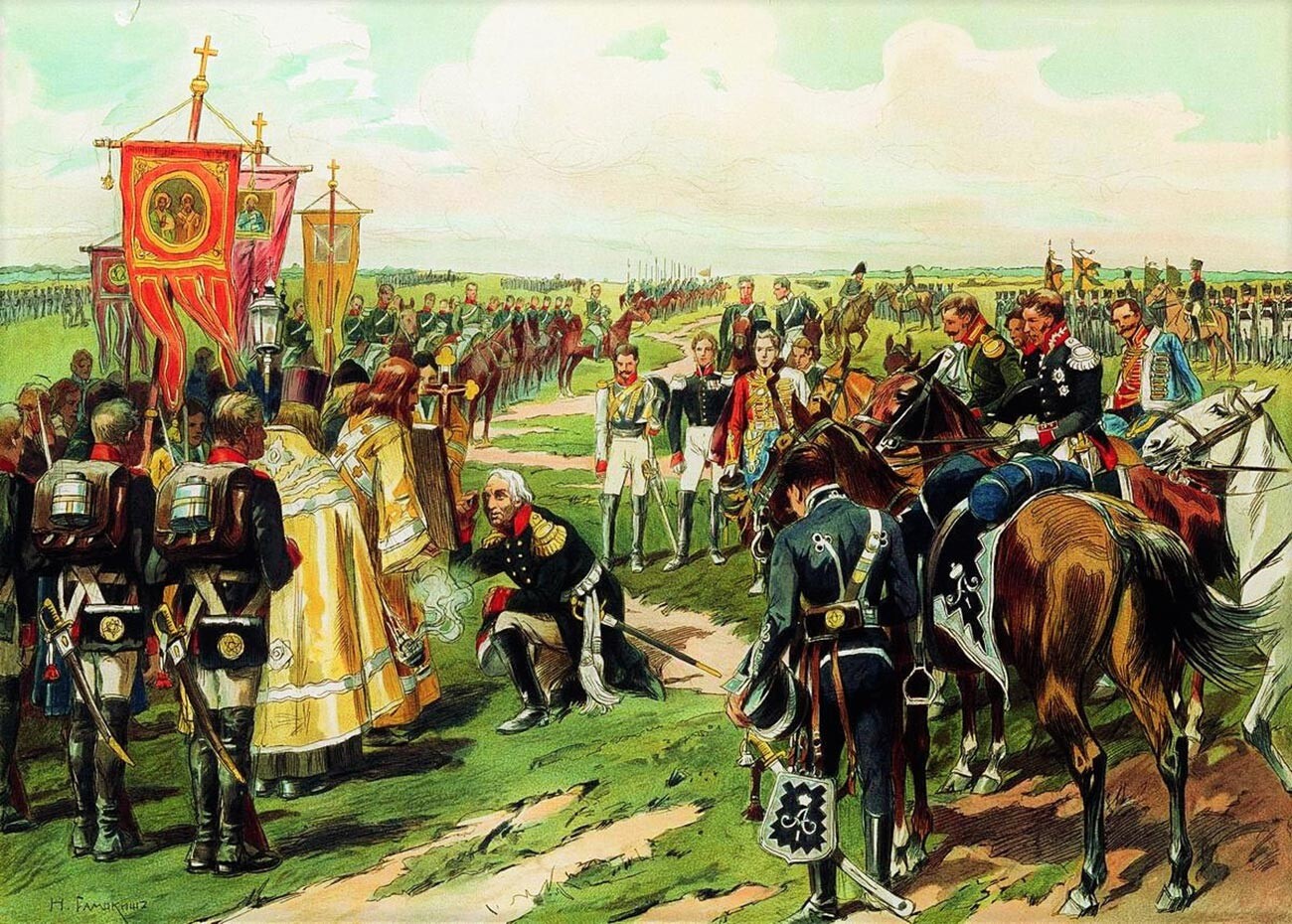 Mikhail Kutuzov before the Battle of Borodino.
Mikhail Kutuzov before the Battle of Borodino.
Bonaparte longed for a major battle with the Russians from the very moment his troops invaded the borders of the Russian Empire on June 24, 1812. His enemy avoided a direct confrontation with the renowned commander in every way possible and retreated, luring him deep into the country. However, as the French approached Moscow, the public and Emperor Alexander I began to put a lot of pressure on Commander-in-Chief Kutuzov to engage Napoleon in a decisive battle. In the end, Kutuzov was forced to give in.
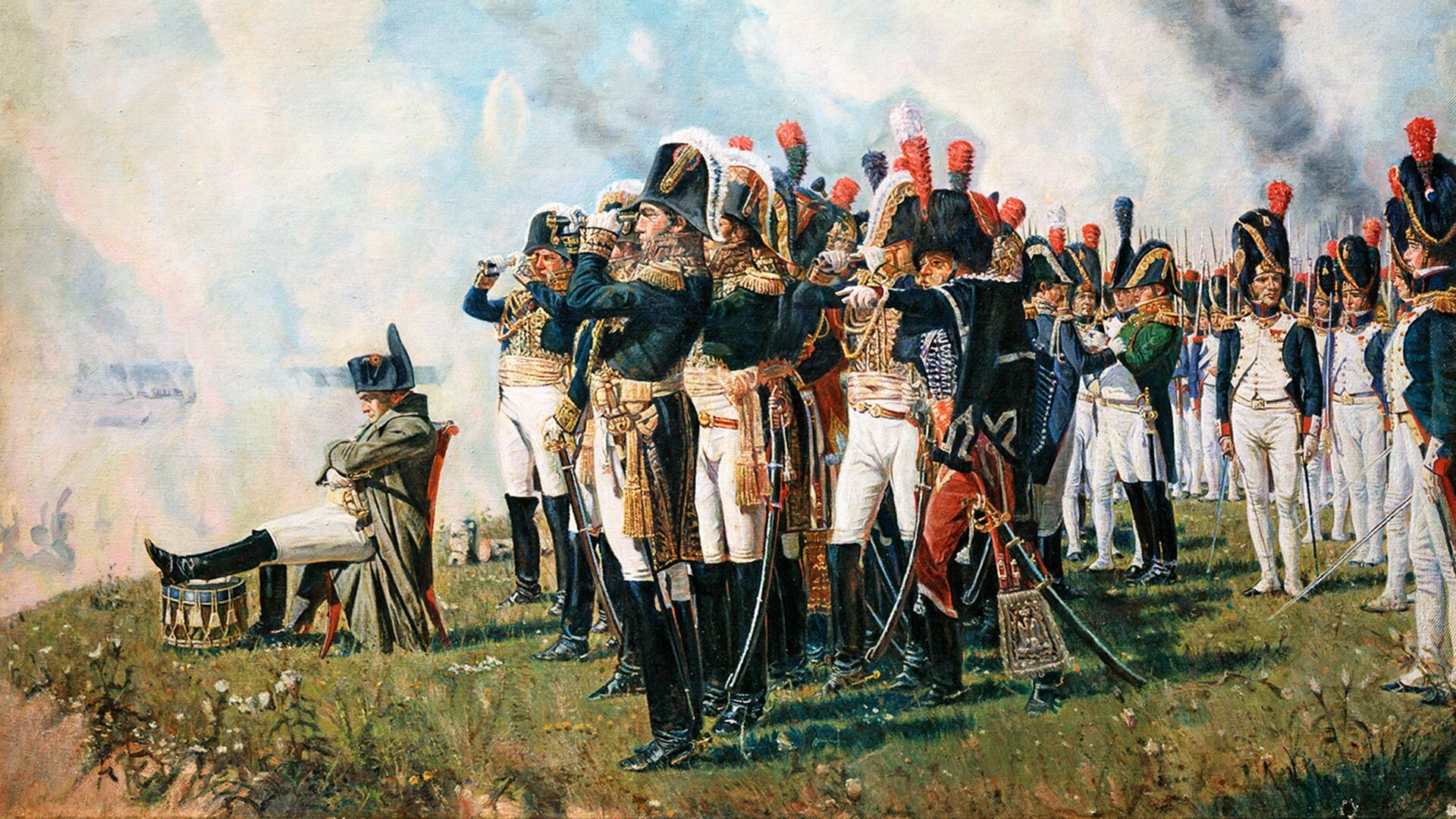 Napoleon near Borodino.
Napoleon near Borodino.
The French and Russian armies were similar in numerical strength - each had about 135,000 men at their disposal. Napoleon hoped to cut through the Russian defenses, break through to their rear, surround them and then destroy them piece by piece. For his part, Kutuzov planned to wear the enemy down on a hastily erected eight-kilometer defensive line in the fields of Borodino and then launch a major counteroffensive. On September 5, several days before the battle, French forces captured a reinforced forward position of the Russian army - the Shevardino redoubt. Nevertheless, the dogged resistance of its defenders had allowed Mikhail Illarionovich to gain time and better prepare his defenses.

At dawn on September 7, French troops from the corps of Prince Eugène de Beauharnais attacked the village of Borodino at the center of the Russian positions. After an hour of bloody fighting, the village was taken, although it cost the French a lot of blood. It was there that General Louis Auguste Marchand Plauzonne was killed - the first, but by no means the last, high-ranking military commander to lose his life that day.
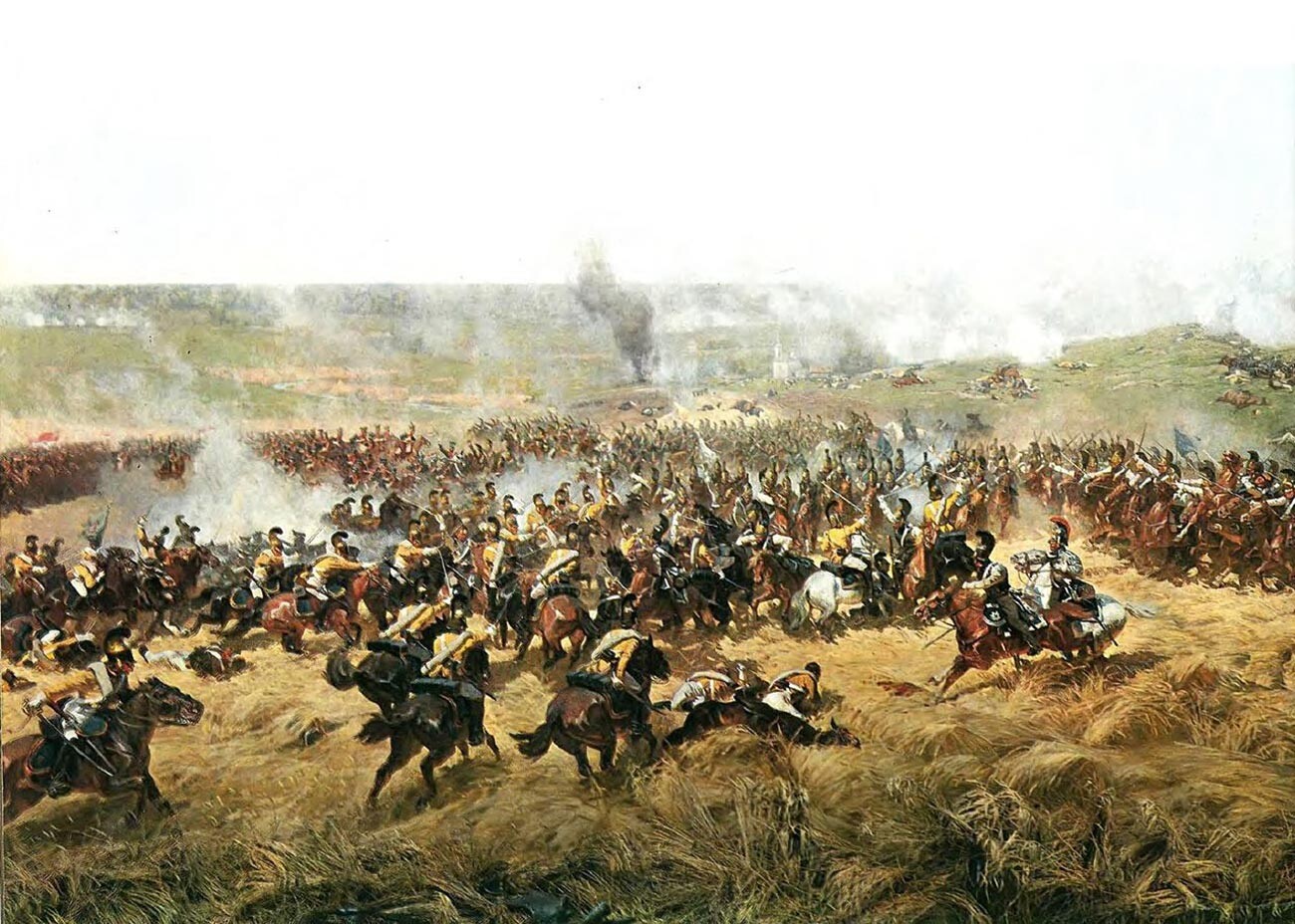 Battle of Borodino.
Battle of Borodino.
The attack on the village of Borodino had been a mere distraction. The Grande Armée delivered its main strike on the left flank of the Russian troops, where the so-called ‘Semyonovskie flèches’ (field fortifications) were situated. The troops of General Pyotr Bagration, which were defending the positions here, came under concentrated fire from 130 French guns. There, in the sector where the main attack was launched, the forces of as many as three marshals - Joachim Murat, Michel Ney and Louis-Nicolas Davout - were engaged.
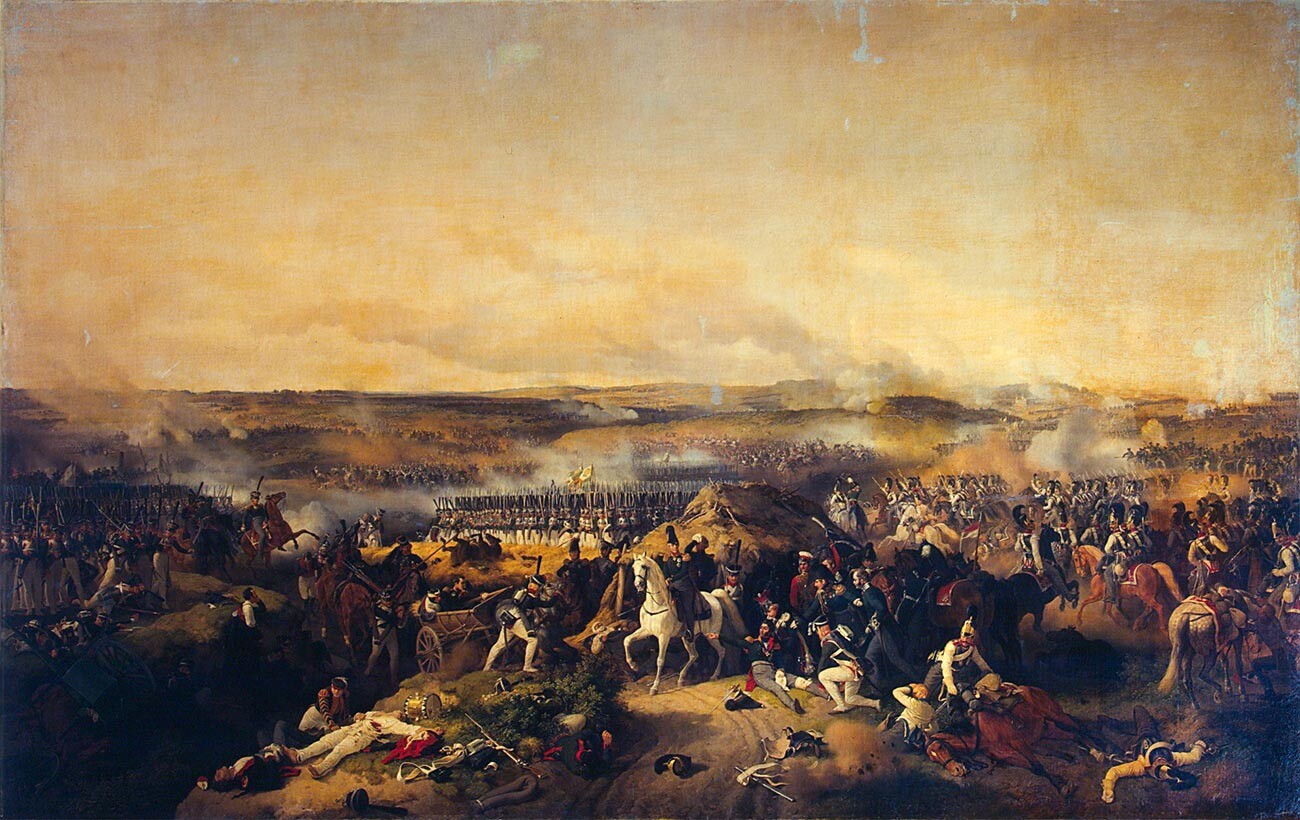 Battle of Borodino.
Battle of Borodino.
“The fiercest of battles was under way on the left flank; the Russians bravely held out in the trenches and the French paid for every step forward with a ridiculous cost in lives. One cannot but marvel at the desperation with which they rushed to their deaths; one cannot but marvel at the spirit with which the Russians defended themselves, holding back the attacks of the superior forces of the enemy,” recalled Major-General of Artillery Ilya Radozhitsky. The flèches withstood seven attacks. More than once, the French seized the positions only to be immediately driven out again by counterattacking Russian soldiers. In one of these counterattacks, Bagration himself was mortally wounded.
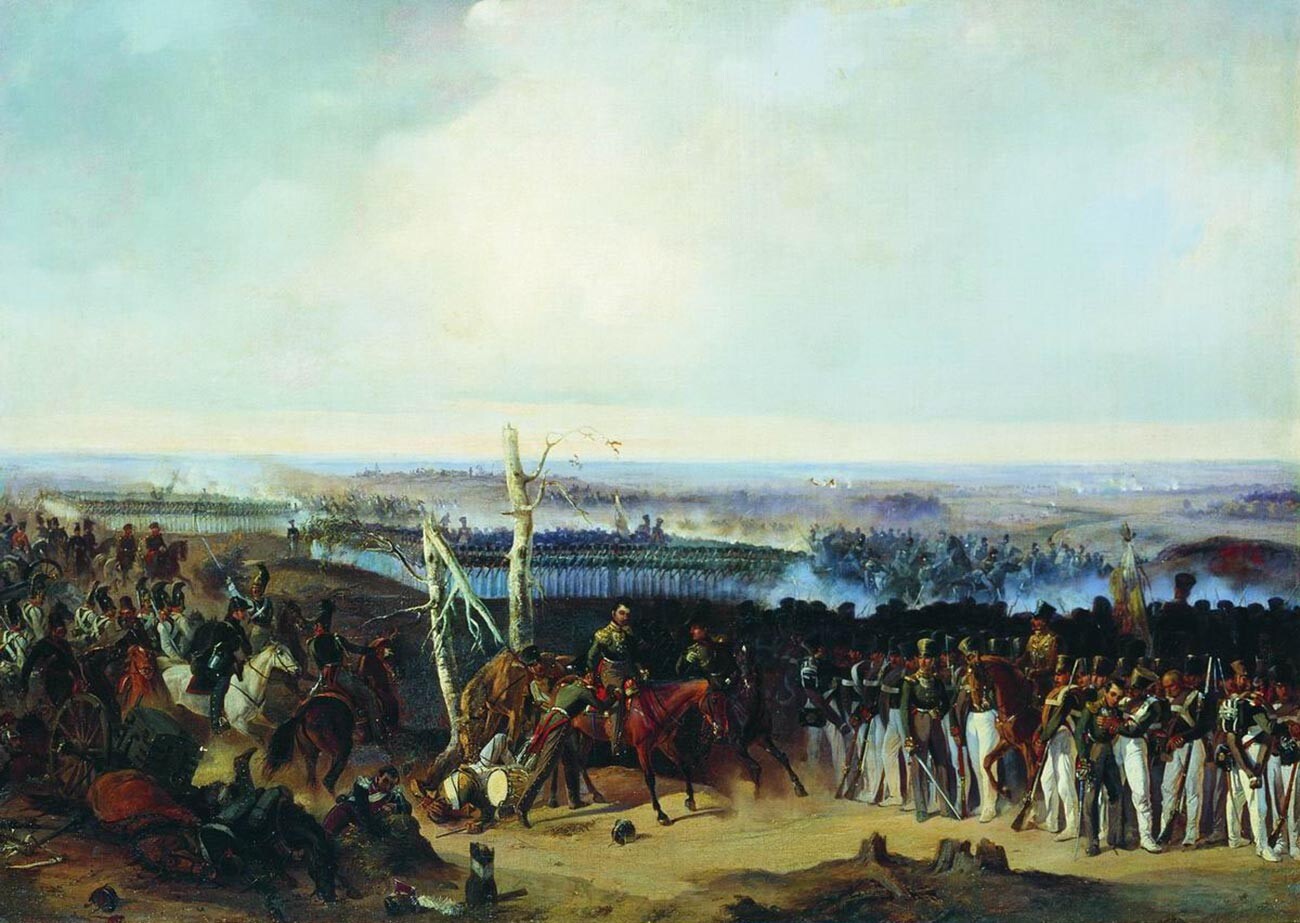 The Life-Guards Izmailovsky Regiment on the Battle of Borodino.
The Life-Guards Izmailovsky Regiment on the Battle of Borodino.
At 9 o’clock in the morning, the Semyonovskiye flèches (later dubbed the ‘Bagration flèches’) were conclusively seized by the enemy. Fierce fighting was already under way by this time in the center of the Russian army at the so-called ‘Kurgannaya Vysota’ (‘Mound Height’), where General Nikolay Raevsky’s artillery battery was situated. At midday, at the most critical moment for the battery, General Fyodor Uvarov’s 1st Cavalry Corps and Matvei Platov’s eight Cossack regiments struck the left flank of Napoleon’s forces without warning after clandestinely crossing the River Kolocha. Sowing consternation in the French camp, they forced the Emperor to deploy part of his troops against them, thus easing the onslaught against Raevsky. Having won time for fresh reserves to be brought up to Mound Height, the cavalrymen and Cossacks withdrew.
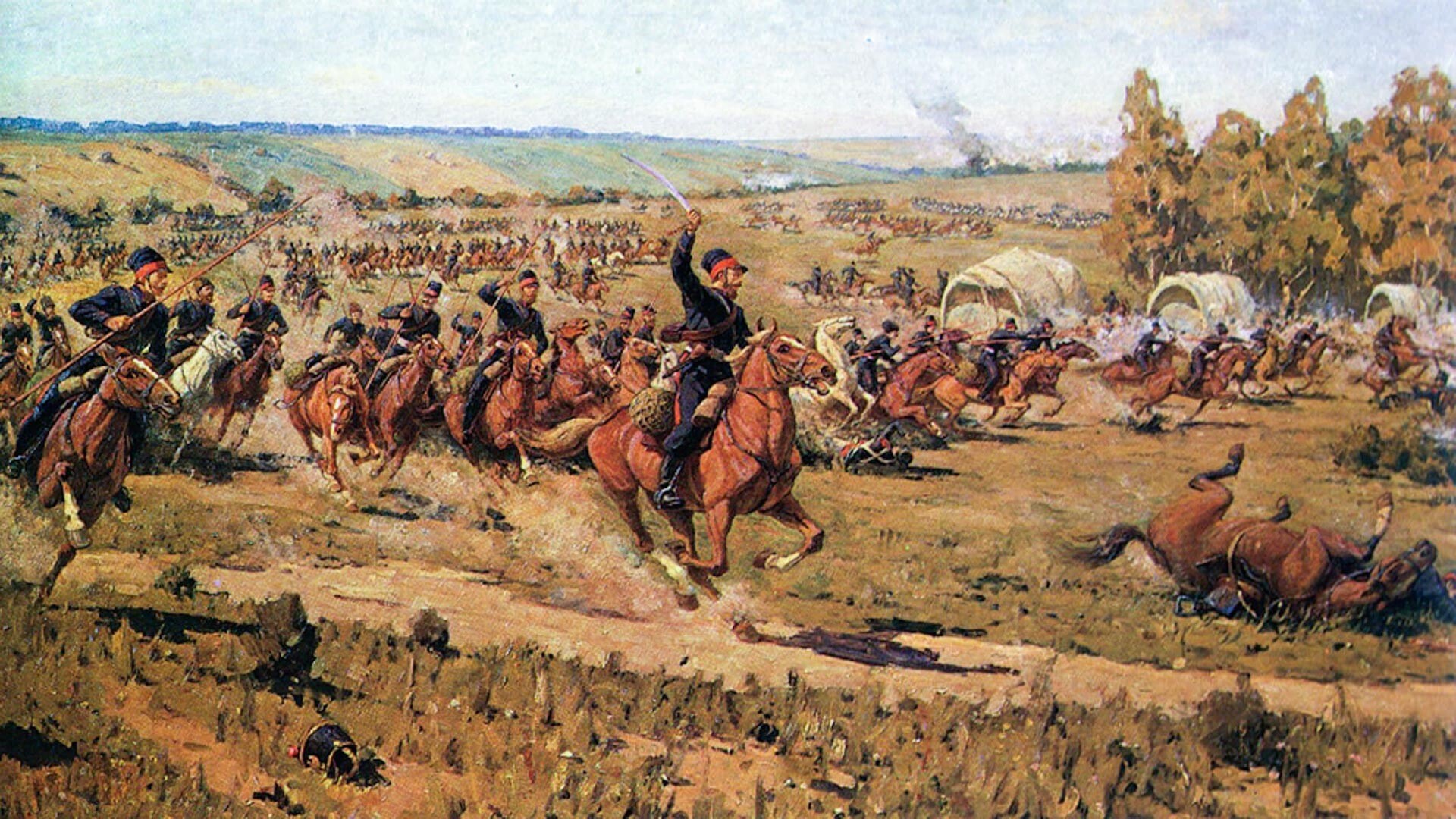 Platov's Cossacks raid into the rear of the French army.
Platov's Cossacks raid into the rear of the French army.
Raevsky’s battery changed hands more than once in the course of the bitter and bloody fighting, until, at 3 o’clock in the afternoon, the French troops finally consolidated their hold on it. “Inside the redoubt the scene was horrifying,” recalled Captain Eugène Labaume. “Corpses were piled on top of one another and there were many wounded men among them, their cries unheard above the din of battle; weapons of every description were strewn over the ground… I noticed in the midst of this mayhem the body of a Russian artilleryman with three insignia on his lapel. The brave fellow seemed still to be breathing; in one hand he held what was left of his sword and, with the other, he firmly clung to the gun which he had so effectively deployed. The enemy soldiers who had been in the redoubt had preferred to die rather than surrender…”
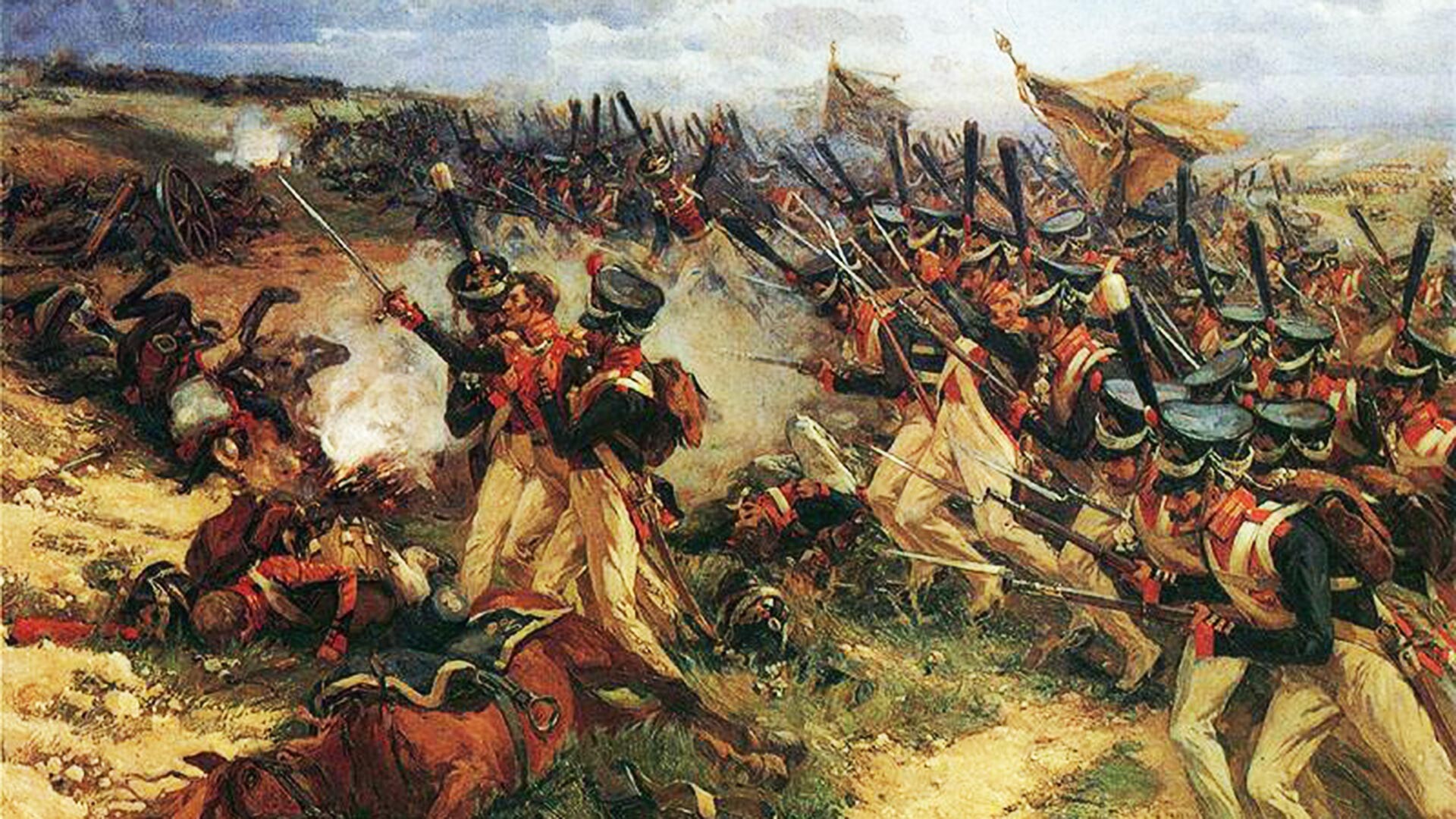 Attack of the Life-Guards Lithuanian Regiment.
Attack of the Life-Guards Lithuanian Regiment.
At 5 o’clock in the afternoon the Emperor himself arrived at the battery, having seen what was to him an unpalatable sight: The Russian troops, somewhat battered but unbroken, had withdrawn to new positions in good order and were ready to repel any attacks. With the arrival of dusk, the fighting ceased, but the artillery cannonade continued. “What about the Russians?” Napoleon asked after some time had gone by. “They are holding their ground, Your Majesty.” “Increase fire. It seems they want some more,” ordered the Emperor, his gloom deepening. “Give them more!” Despite his generals’ attempts to persuade him to throw his last reserve - the 19,000-strong elite Old Guard - into the battle, he stopped short of doing so.
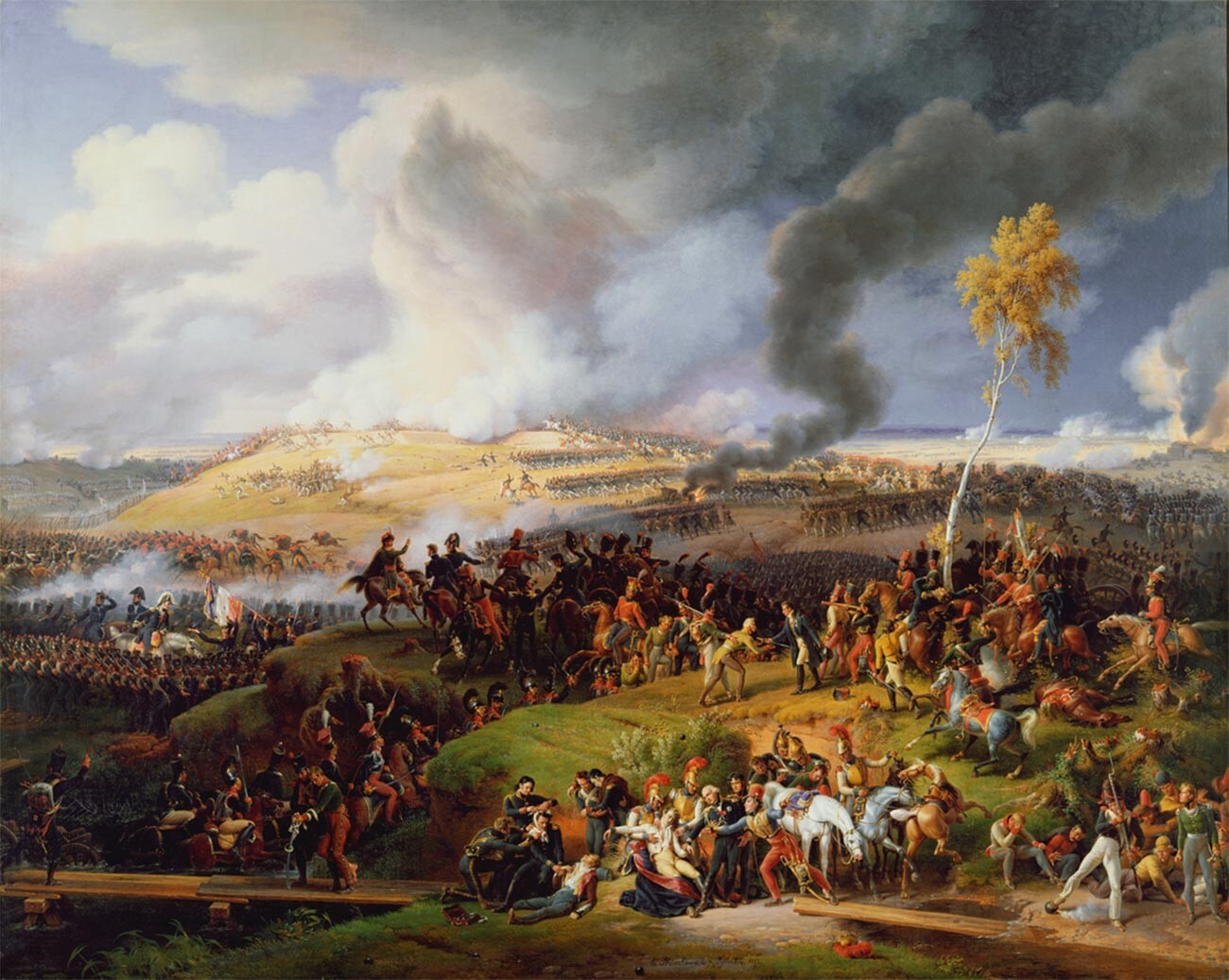 Battle of Borodino.
Battle of Borodino.
Even before dawn, the Russian army had withdrawn from its positions and fallen back in the direction of Moscow. Lacking both the means and the will to pursue it, the exhausted French troops remained for the rest of the night on the battlefield among the dead. “Around each campfire, as soon as its light began to pierce the darkness, the wounded and the dying began to congregate and, soon, there were more of them than us,” wrote Captain Heinrich von Brandt, who fought for Napoleon in Russia. “They appeared from all directions in the semi-darkness like ghosts, dragging themselves towards us and crawling into the circles of light around the campfires. Some of them, horribly mutilated, expended their last ounce of strength on this extreme exertion. They would wheeze hoarsely and breathe their last, fixing their eyes on the flames as if beseeching them for help; others retained the breath of life but looked like deathly shadows!”
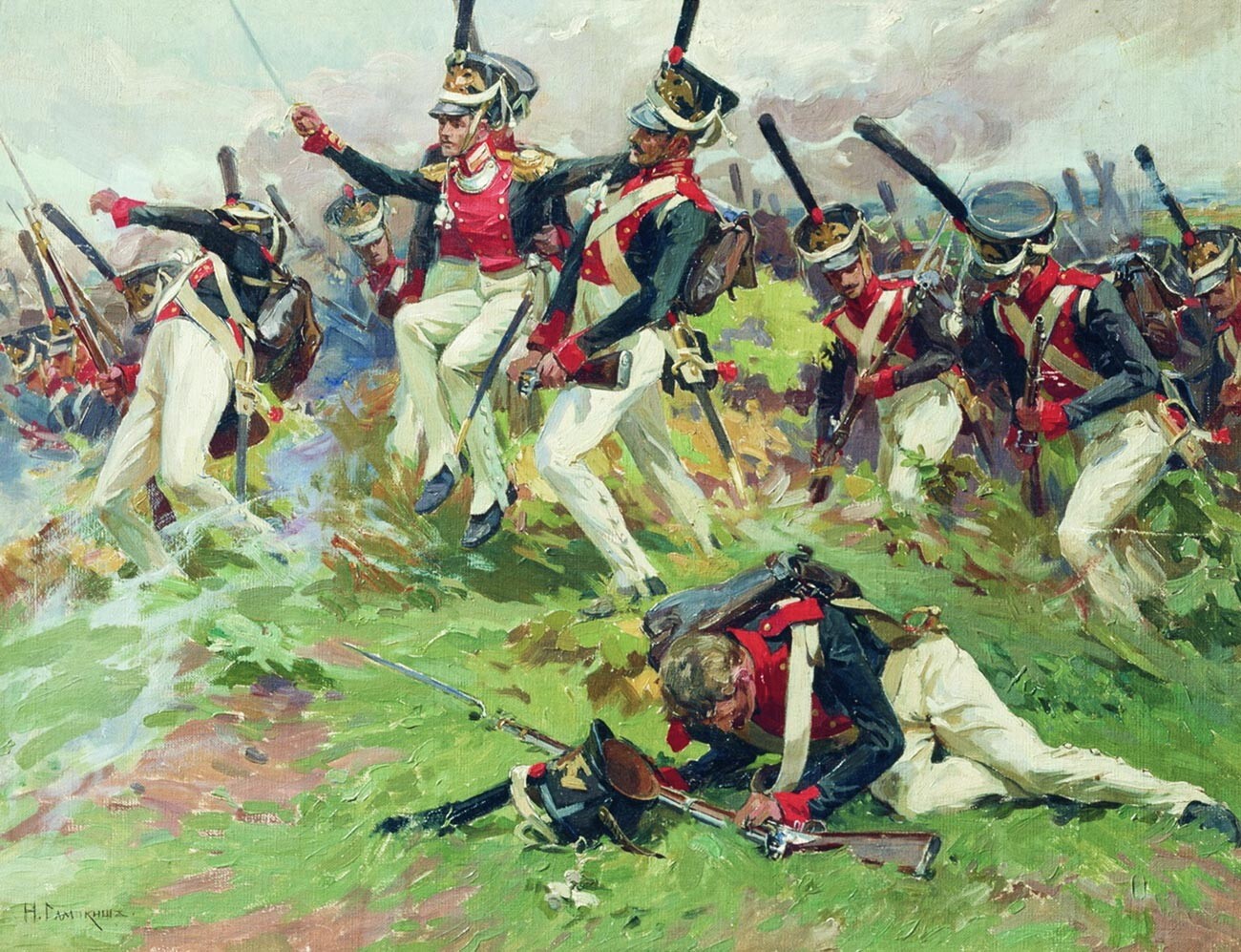 Attack of the Life-Guards Lithuanian Regiment.
Attack of the Life-Guards Lithuanian Regiment.
The Russian army lost around 45,000 men killed, wounded or missing in action, while the French losses are estimated at roughly 35,000. Sixteen French and Russian generals lost their lives on the battlefield and another sixty or so generals were wounded or concussed. Because of these large losses among senior commanding officers, the Battle of Borodino is sometimes called the ‘Battle of the Generals’.
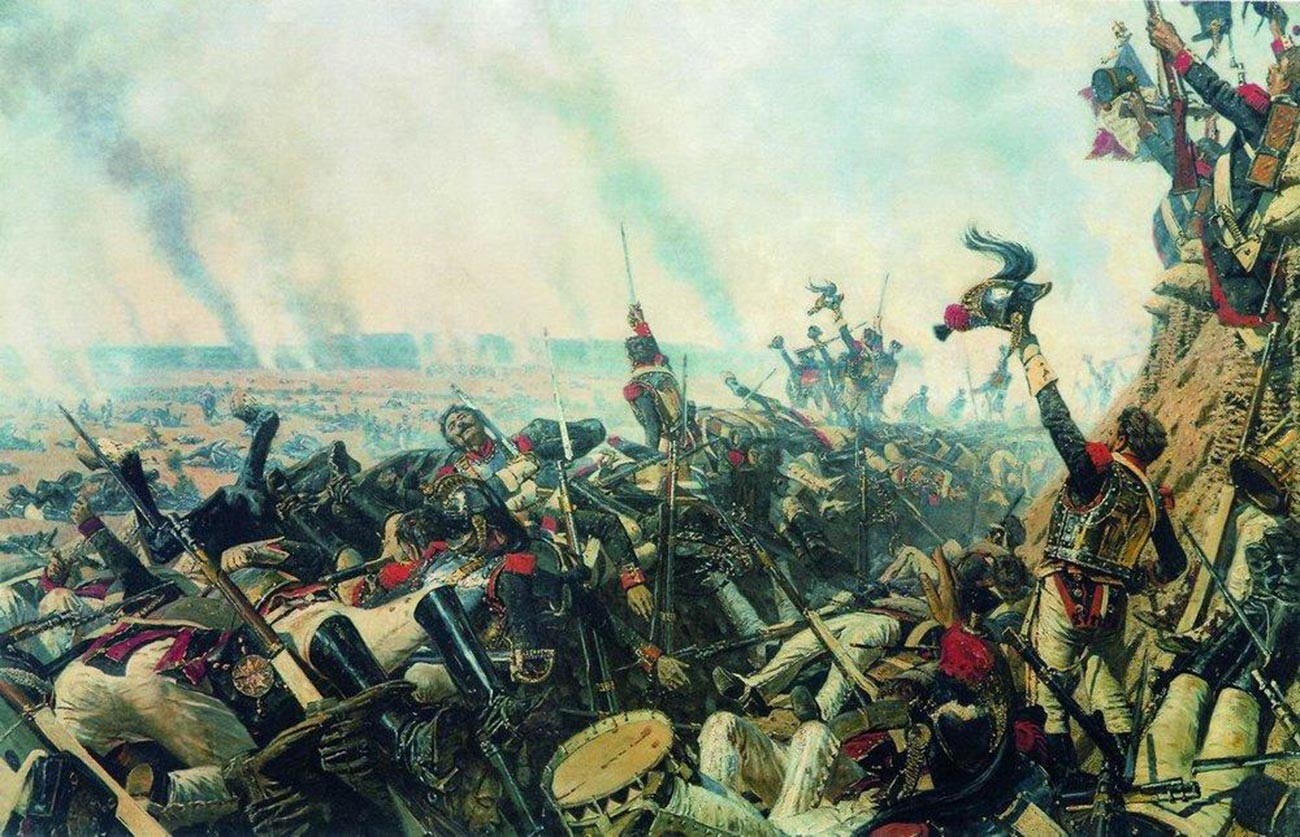 The end of Borodino battle.
The end of Borodino battle.
In occupying all the enemy’s key positions and forcing the Russian army to withdraw from the battlefield, Napoleon Bonaparte gained a tactical victory. On the strategic level, nevertheless, Borodino was a defeat for the Emperor: The Russian troops were not crushed and indeed they remained in full combat formation. “Of what use was it to us that the battlefield remained in our hands?” lamented General Philippe-Paul, comte de Ségur. “In a vast country such as this, is there any shortage of Russian soil to fight on?”
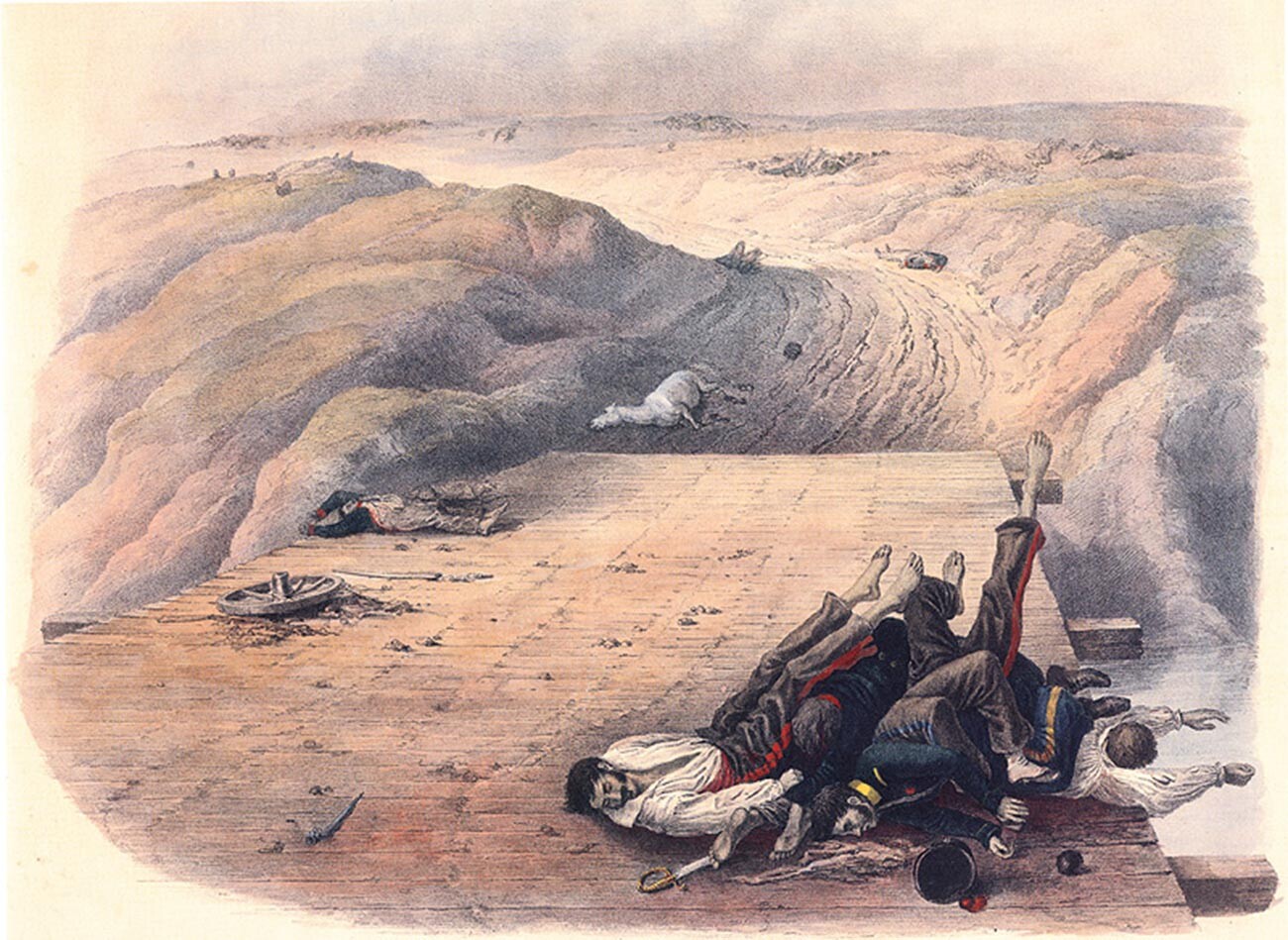 The bodies of dead soldiers of Napoleon's Grand Armée left on the bridge over the River Kolocha after the Battle of Borodino.
The bodies of dead soldiers of Napoleon's Grand Armée left on the bridge over the River Kolocha after the Battle of Borodino.
Finding itself so far from home, the Grande Armée had suffered enormous and irretrievable losses, which proved ultimately to have been in vain. A mood of disappointment began gradually to grip the Emperor himself, his generals and ordinary soldiers. For all that, the French still hoped to finish the military campaign triumphantly. After Borodino, they continued their push towards Moscow, without suspecting, however, that they were heading for certain doom.
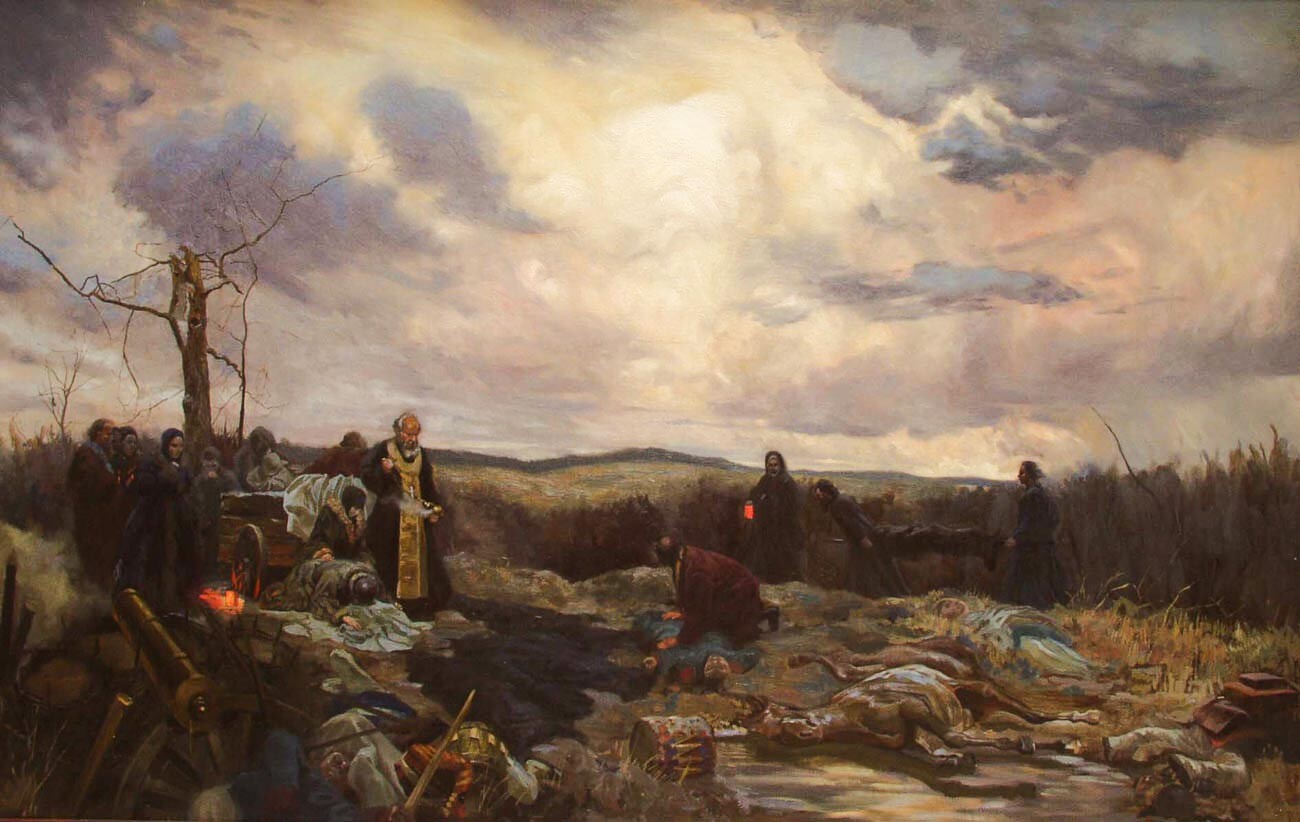 Memorial service for General A.A. Tuchkov, who died during the Battle of Borodino.
Memorial service for General A.A. Tuchkov, who died during the Battle of Borodino.


